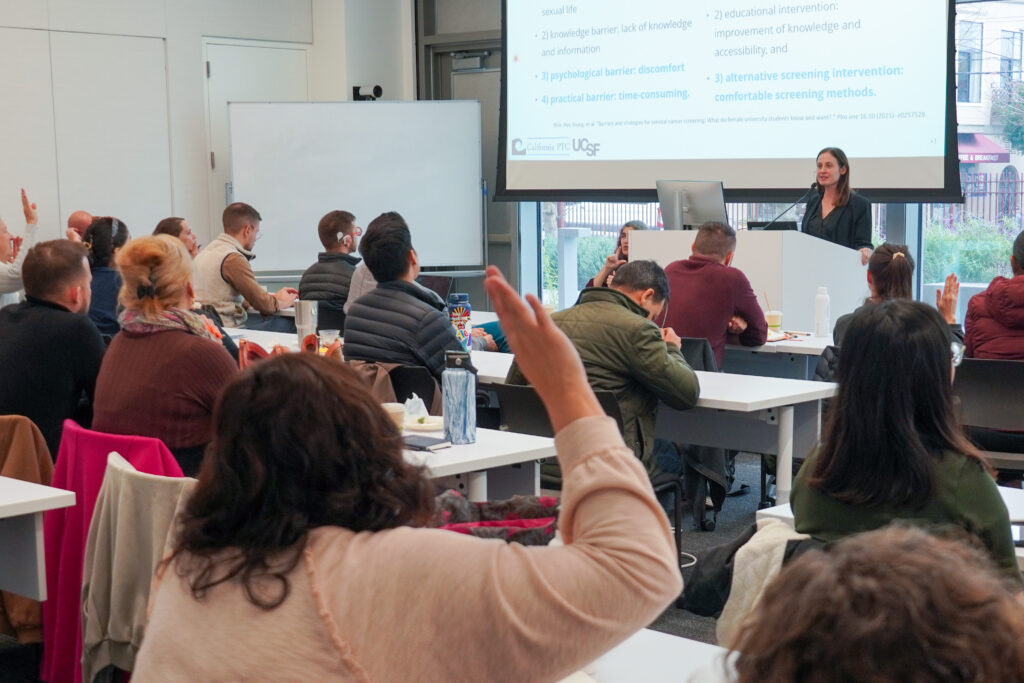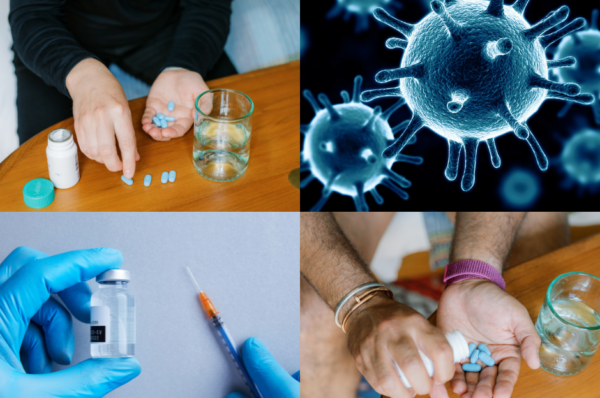Resources
Browse our content and download the information you need.

Filters
The Pelvic Floor: A Doctor and Her Patient Hold It Together
A small leak during a big laugh might hint towards a bigger story. In this episode exploring the pelvic floor, Dr. Olga Ramm and patient Nicole Curutchet answer the age-old question-…
Is Permanent Contraception Always Fool Proof? Find out with Dr. Schwartz and Dr. Treder
In this episode, Dr. Eleanor Bimla Schwartz and Dr. Kelly Treder discuss the misconceptions of tubal sterilization, for example, that is it 100% fool-proof, that the surgery is reversible, that…
STI Clinical Update Webinar – Congenital Syphilis Scenarios: A case-based overview
April 28, 2025, 12:00PM-1:15PM (PDT) CME not offered for viewing the webinar recording. This presentation reviews four separate cases of congenital syphilis (CS). Each case illustrates one of the four…
Clinical Guidance: Infant and Child Follow-up After Exposure to Syphilis in Utero
Designed to support clinicians and public health practitioners, this resource provides detailed algorithms for the evaluation, treatment, and follow-up of neonates, infants, and children exposed to syphilis during pregnancy. Developed…
Neisseria Gonorrhoeae (NG) Culture and Antimicrobial Susceptibility Testing (AST) Availability for California Providers
Designed for healthcare providers in California, this resource provides a detailed list of laboratories that offer Neisseria gonorrhoeae culture and/or antimicrobial susceptibility testing – both of which are recommended for…
Positive Women’s Network: Liberation as Women Living with HIV
Marnina Miller, co-executive director at the Positive Women’s Network (PWN), shares her experiences as a Black woman with HIV. She says, “I want liberation… I don’t want equity. I don’t…
CLIA-Waived Syphilis Point-of-Care Testing Options for Providers
This clinical resource outlines the CLIA-waived point-of-care testing options available for syphilis, including the Syphilis Health Check and the DPP HIV-Syphilis System. The document summarizes and compares the two CLIA-waived…
Foundational Skills in Disease Intervention
In collaboration with the California Department of Public Health, Center for Infectious Diseases, the CAPTC is offering training and support to state and local health department staff conducting disease intervention…
Beyond Birth: Midwives’ Role in Sexual Health
Dr. Bethany Golden, a nurse midwife, shares the many ways midwives support sexual and reproductive health beyond childbirth. Bethany shares how midwives provide holistic, patient-centered care, including contraception, STI treatment,…
Focus on Sexual Health Services for Latinx/Hispanic Communities: Session 2
Tuesday, February 25, 11am-12pm (PT). Taking Sexual Histories and Risk Assessments in Spanish This session will focus on everyday language used by clinicians and others in conversations with their Spanish-speaking…
Monica Gandhi, MD: HIV as a Movement, Not Just an Infection
Monica Gandhi, MD, reflects on her decades-long work in HIV care, from providing care early in the epidemic to leading implementation of today’s groundbreaking medical advances.
Focus on Sexual Health Services for Latinx/Hispanic Communities: Session 1
Tuesday, February 11, 2025, 12:30-2:00pm PT. This workshop will introduce everyday terms used in PrEP, PEP, and doxy-PEP counseling in Spanish, through a basic review of these topics in Spanish….











